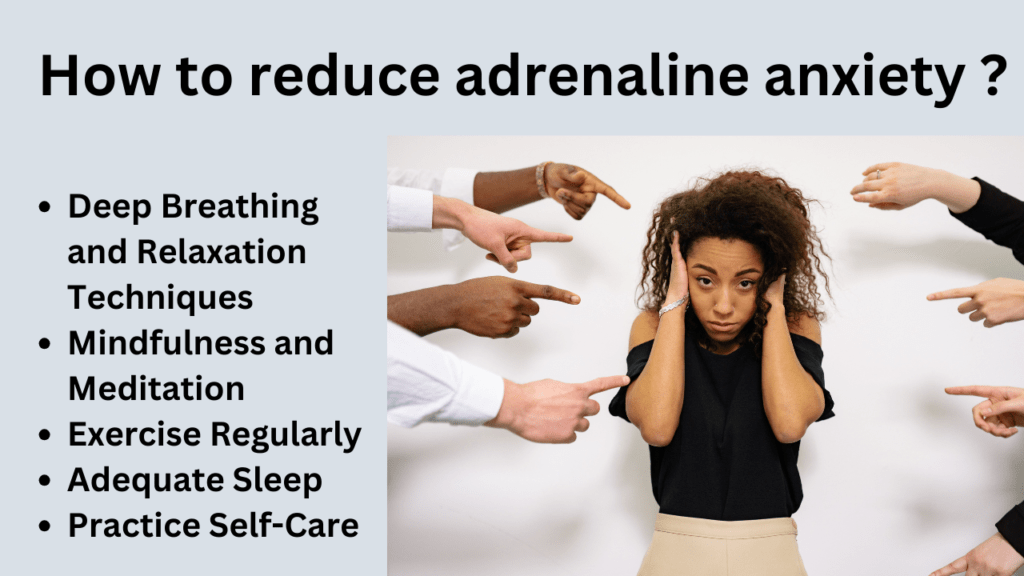Here you will about “how to reduce adrenaline anxiety”.

Adrenaline, often referred to as the “fight or flight” hormone, is a natural response that prepares our bodies to react to perceived threats. However, for some individuals, the release of adrenaline can lead to anxiety and stress, even in non-threatening situations.
Sufficient adrenaline-induced anxiety can be overwhelming, but there are effective ways to manage it and find calm amidst the storm.
Here we will explore several strategies to help you reduce adrenaline-induced anxiety and regain control of your emotional well-being.
- Deep Breathing and Relaxation Techniques
Deep breathing exercises are one of the quickest and most effective ways to reduce adrenaline-induced anxiety. When anxiety strikes, your breathing often becomes shallow and rapid, which can exacerbate feelings of panic.
Take a moment to pause and focus on your breath. Inhale slowly through your nose for a count of four, hold your breath for a count of four, and then exhale slowly through your mouth for a count of four. Repeat this process several times to calm your nervous system.
Progressive muscle relaxation is another technique that can help. Start at your toes and work your way up, tensing and then releasing each muscle group in your body. This can alleviate physical tension caused by excessive adrenaline.
- Mindfulness and Meditation
Mindfulness meditation involves paying attention to the present moment without judgment. It can help you become more aware of your body’s responses to adrenaline and reduce anxiety over time.
Regular mindfulness practice can train your brain to respond differently to stressors, making it easier to manage adrenaline-induced anxiety.
- Exercise Regularly
Exercise is a natural way to burn off excess adrenaline and reduce anxiety. Engaging in physical activity releases endorphins, which are natural mood lifters.
Find an exercise routine that you enjoy, whether it’s yoga, jogging, swimming, or dancing, and make it a regular part of your life.
- Healthy Diet and Hydration
Choose a balanced diet rich in fruits, vegetables, whole grains, lean proteins, and plenty of water to keep your body and mind in optimal condition. Avoid excessive caffeine, sugary foods, and processed meals, as they can contribute to anxiety and exacerbate adrenaline-related symptoms.
- Get Adequate Sleep
Lack of sleep can amplify anxiety and make it harder to manage adrenaline. Prioritize a regular sleep schedule and create a calming bedtime routine to improve the quality and duration of your sleep.
- Seek Professional Help
If adrenaline-induced anxiety is severely impacting your life, it may be beneficial to seek help from a mental health professional. Therapy, such as cognitive-behavioral therapy (CBT), can provide you with tools and strategies to manage anxiety effectively.
- Practice Self-Care
Make self-care a priority in your life. Engage in activities that bring you joy and relaxation, whether it’s reading, painting, spending time with loved ones, or taking long walks in nature.